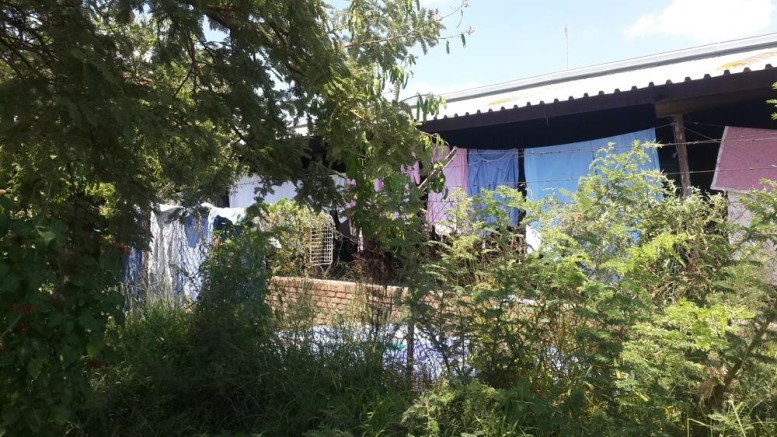
A company in Limpopo is making an average of R2.2 million a month from a hospital laundry tender even though it has only one industrial washing machine and two commercial ones – all of which do not work.
A technical evaluation report, a copy of which City Press has obtained, shows that Mphefhedzi Business Enterprise was awarded the contract to do the laundry of 22 hospitals across Limpopo even though it was “not recommended”.
The document shows the company did not even have basic equipment to do the job – including irons, sorting tables or properly demarcated working areas – and had only one dryer, which did not work.
This week, City Press saw hospital sheets, blankets and patient gowns from St Rita Hospital in Sekhukhune hanging on makeshift washing lines and fences, and strewn across a field piled high with litter.
Despite this, the company’s owner, Oriel Masiavhula, said that he was “totally unaware” his company had failed the evaluation report, or that the laundry for use by hospital patients was being improperly handled.
“I mostly monitor the deliveries at hospitals and have not spoken to my manager in Seshego recently. But I will investigate,” he said. “What I know is that we are not allowed to hang laundry in the open, but in a secluded area free of dust.”
Mphefhedzi Business Enterprise won the tender to provide laundry services to 22 of the province’s 41 hospitals in June. It is paid an average R100 000 a month for each hospital.
But Masiavhula’s company is not the only one leaving hospital laundry out in the open.
City Press also saw linen and patient gowns from Seshego Hospital near Polokwane being left to dry in the same conditions by employees of another laundry company, Mogwadi Trading Enterprises, across the road.
An employee there, who asked not to be named, said they washed the linen – much of which had been soiled with excrement, urine, blood and vomit – by hand.
At Mogwadi Trading Enterprises, City Press saw workers using a single steel basin to do most of the washing because the small domestic washing machine could not handle the amount of laundry coming in.
Companies laundering hospital linen are required to have at least one 50kg-capacity industrial washing machine and a similar-sized tumble dryer.
The room in which the laundry is handled was piled high with filthy garments – some smeared with human waste – while plastic bags containing more items were spread across the room. Soiled patient gowns hung from the room’s burglar bars.
The employee said some of her colleagues did not want to wear gloves that had been provided because they were “uncomfortable”.
Limpopo health spokesperson Billy Teffo said hospital linen should “under no circumstances be carried in open delivery vehicles, washed by hand or hung in the open to dry”.
Staff handling the linen must also wear masks and gloves, and clean linen must be completely dry, fresh-smelling and free from stains.
Officials from the health department are also supposed to pay unannounced visits to check on service providers’ compliance.
“If the department is made aware of this anomaly, action will be taken against the responsible contractor in terms of general conditions of contract,” said Teffo.
The department was informed on Wednesday morning, but by Friday the women were still washing the linen by hand, and Mphefhedzi’s linen was still hanging outside.
Two of Mogwadi’s six directors, Malane Motlapema and Jermina Morema, said they were unaware their company had received a contract to wash hospital linen.
They were unable to provide details for a company spokesperson.
Teffo said the department had previously received complaints from hospitals serviced by Mphefhedzi that some of the linen they received was wet and still dirty. But the service had improved after discussions with management.
Masiavhula said he had written to the department asking for his contract to be delayed in the Waterberg District because “we were not ready and still in the preparation stage. There were some challenges when we started and I was not coping as we tried to adjust to the demand.”
http://city-press.news24.com/News/R22m-tender-zero-equipment-20150810

